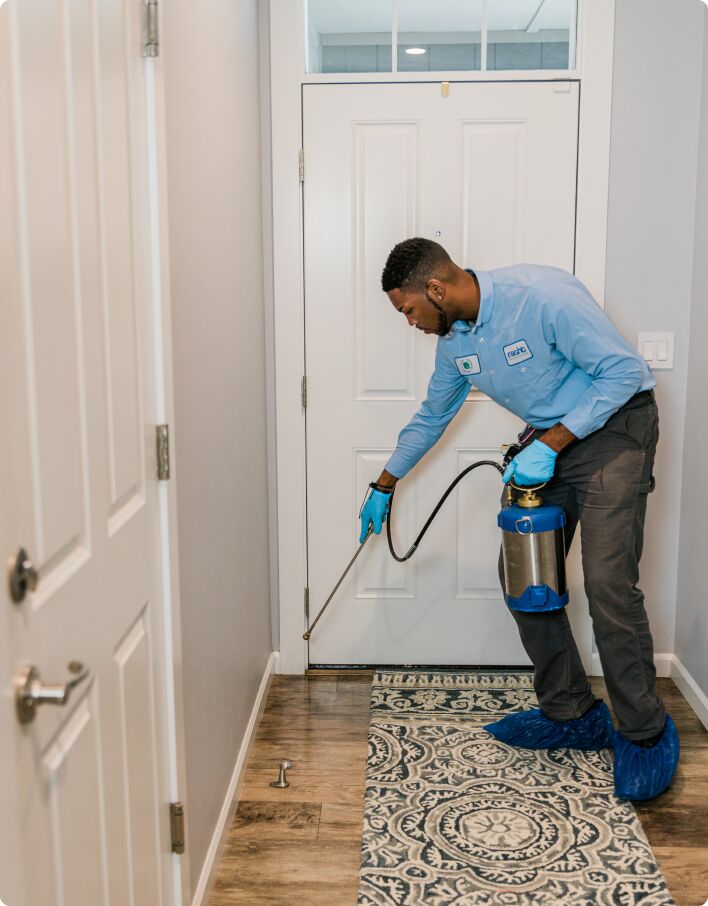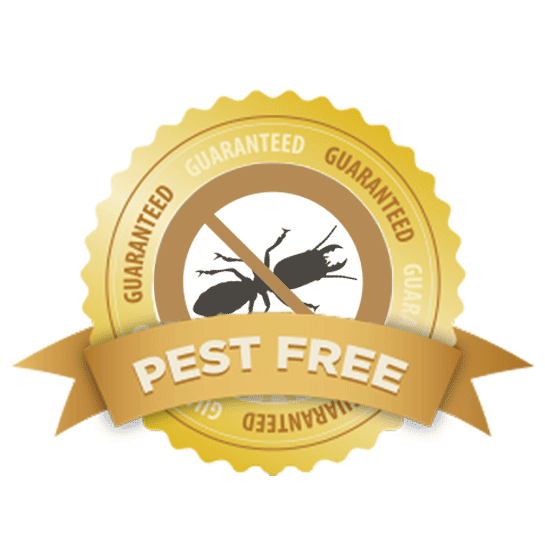Comprehensive Pest Control Homestead Services for a Pest-Free Home
Comprehensive Pest Control Homestead Services for a Pest-Free Home
Blog Article
Ultimate Guide to Insect Control: Advantages, Methods, and Types
Bug control is an essential facet of preserving a healthy and balanced and risk-free setting, whether it be in household, commercial, or agricultural setups (Pest Control Homestead). Recognizing the benefits, techniques, and types of pest control approaches can considerably affect the effectiveness of parasite administration methods. By checking out the diverse series of methods offered, one can tailor parasite control initiatives to particular needs and obstacles, making certain a sustainable and comprehensive remedy. The world of insect control is complex, with different tools and methods at one's disposal.
Significance of Insect Control
Pest control plays a crucial function in maintaining the health and security of both industrial and household environments. By successfully managing and getting rid of individuals, organizations and pests can avoid the spread of illness, shield home from damage, and make sure a tidy and sanitary living or functioning area. Bugs such as rats, termites, and bugs can posture major health threats to people and pets by infecting food, transferring illness, and creating allergies. Additionally, insects can cause architectural damages to structures and framework, causing expensive repair work and possibly jeopardizing the safety of owners.
Applying routine bug control gauges not just safeguards the physical health of individuals however also adds to their psychological health by producing a comfy and protected environment without the disturbances and nuisances triggered by parasites. Moreover, in business settings, insect control is necessary for preserving a positive track record, adhering to health and wellness policies, and guarding the wellness of consumers and staff members. In general, the value of pest control can not be overstated in maintaining the wellness, safety and security, and overall lifestyle in both business and residential areas.
Usual Pest Control Strategies
Given the important role that pest control plays in safeguarding health and home, it is critical to check out effective approaches for handling and removing parasites. Typical bug control strategies encompass a variety of methods tailored to details bug kinds. Physical methods include using webs, obstacles, or traps to stop insects from going into or to catch them. Biological control uses natural predators or microorganisms to regulate pest populations, reducing the demand for chemical treatments. Chemical control, such as pesticides, is commonly made use of but requires mindful application to decrease ecological impact. In addition, integrated insect management combines numerous methods to accomplish lasting insect reductions while decreasing threats to human wellness and the ecological community. Social techniques, like proper waste management and maintaining sanitation, likewise play a critical duty in insect prevention. Ultimately, one of the most effective pest control approach often includes a mix of techniques customized to the particular insect varieties and the setting in which they live.

Organic Parasite Control Methods
When thinking about environmentally-friendly techniques to taking care of parasite populaces, organic insect control approaches provide a lasting service. One usual natural parasite control technique is biological control, which entails presenting natural predators, parasites, or pathogens to manage bug populaces.
An additional efficient organic parasite control approach is using natural pesticides stemmed from all-natural sources such as bacteria, minerals, or plants. These chemicals target certain insects while lessening harm to advantageous pests and the ecological community. Neem oil, for instance, is a prominent natural pesticide that interrupts the development and reproduction of numerous insects without triggering harm to various other organisms.
Cultural practices like plant rotation, buddy planting, and maintaining appropriate plant wellness also drop under organic bug control methods. By creating a well balanced community and lowering insect susceptabilities, these practices aid prevent insect problems without the requirement for harmful chemicals. Organic parasite control approaches not only secure the setting but also advertise long-term and lasting parasite management options.
Kinds Of Pest Control Solutions
Considering the diverse approaches available for handling bug populaces, a key element to check out following is the variety of services provided under the umbrella of insect control. Bug control services can be generally classified right into 3 primary types: domestic parasite control, business insect control, and incorporated bug monitoring (IPM)
Residential bug control services focus on managing and eliminating bugs commonly discovered in homes, such as ants, termites, click over here rodents, and cockroaches. These solutions frequently include the application of risk-free yet reliable therapies to secure the health and wellness of residents.

Integrated Pest Management (IPM) takes a holistic strategy to pest control by integrating organic, cultural, physical, and chemical strategies to take care of insect populaces efficiently while reducing risks to human health and wellness and the setting. IPM concentrates on long-term avoidance and sustainable insect monitoring techniques.
Integrated Insect Monitoring Approach
An integrative method to pest management, called Integrated Pest Administration (IPM), incorporates various techniques to successfully manage pest populations while decreasing dangers to human wellness and the setting. Pest Control Homestead. IPM concentrates on stopping pests through a combination of biological, social, physical, and chemical control techniques. By using an all natural approach, IPM aims to attend to the root causes of insect infestations instead than simply dealing with the signs and symptoms
One secret facet of IPM is using organic controls, such as presenting natural predators or microorganisms to handle bug populaces. This method decreases the reliance on chemical pesticides, thus lowering the overall environmental impact. Cultural controls entail modifying the insect's habitat to make it less hospitable, while physical controls include using traps or barriers to leave out or capture pests.
IPM also stresses surveillance and normal examination to analyze insect levels precisely and identify the most suitable control techniques. By integrating these varied approaches, IPM uses a sustainable and effective method to pest monitoring that advertises long-lasting services while safeguarding human health and the environment.

Final Thought
To conclude, parasite control is vital for keeping a risk-free and healthy setting. By making use of various techniques such as organic approaches and incorporated insect management, people can properly take care of and stop parasite problems. Various sorts of insect control solutions are readily available to deal with particular requirements and preferences. In general, executing correct pest control steps can aid secure building, plants, and human health and wellness from the dangerous impacts of parasites.
Recognizing the benefits, strategies, and kinds of insect control approaches can dramatically impact the efficiency of pest management approaches. Common bug control strategies incorporate a variety of techniques customized to particular bug types. One usual organic pest control technique is biological control, which entails introducing natural predators, parasites, or microorganisms to manage parasite populations.An integrative method to pest management, recognized This Site as Integrated More Help Pest Management (IPM), integrates different techniques to successfully control pest populations while reducing dangers to human health and the atmosphere. Social controls include changing the parasite's environment to make it much less hospitable, while physical controls include the use of barriers or traps to leave out or record bugs.
Report this page